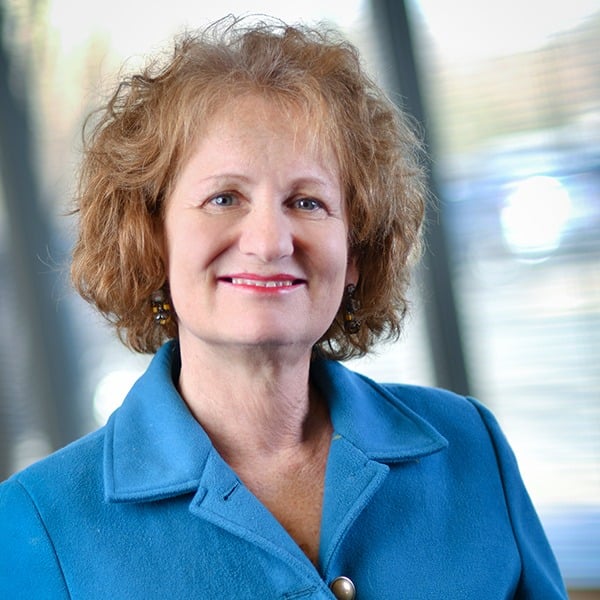
The story so far: In episode one, renowned surgeon Dr. Cliff D.’s angry outburst at a nurse and a physician colleague during a procedure prompted HR director Joelle K. to investigate. In episode two, she found nurse Janice L. and attending Dr. Gita K. were “walking on eggshells” in the presence of the volatile surgeon, prompting concerns about the effect of his temper on morale—and retention. Joelle’s conversations with the principals, with other colleagues of Dr. D., and with medical director Dr. Mohammed R. in episode three resulted in seeing Dr. D.’s behavior in the operating room as part of a long-term pattern of disruption. Their next extremely unpleasant but necessary step: formally confront the veteran physician.
Part IV — The Confrontation
“I’ve spoken to Dr. F. and he’s agreed to go with you to talk with Cliff,” said Joelle.
“That’s a relief,” said Dr. Mohammed R. “Wei-Ming F. is Cliff’s age, and I know they respect each other.”
“They do, and Dr. F. hasn’t been involved with any of the incidents,” said Joelle, “so I’m pretty sure Cliff will see him as an honest broker—somebody who will be representing the system and its interests.”
“And you won’t be there, right?”
“Nope,” said Joelle. “This needs to be doc-to-doc.”
“Okay, so what’s the drill exactly?” Dr. R. asked, with a look suggesting he wasn’t eager to hear the answer.
“The two of you speak with Cliff to set up a formal meeting. Then you meet, lay out the issues, especially the impact of his behavior, listen to Cliff’s side of the story—of the stories. Then end by letting him know you’re going to draft a PIP—a performance improvement plan—and expect him to stick to it.”
Dr. R. bit his lower lip. “I am so not looking forward to this.”
“Of course you aren’t,” said Joelle quietly. “But I know how much you respect him, and I know you’re going to show your respect and understanding.”
The Confrontation
Dr. R. and Dr. Wei-Ming F. spoke to Dr. D. in his office the next afternoon. The surgeon…well, the
surgeon exploded.
“Who sent you?” he demanded. “Did Janice send you? Or the office people?”
“Cliff,” said Dr. F., “we came on behalf of the practice, the system and the patients. The conversation we want
to have with you is about your effect on your colleagues and what it means for the effectiveness of the teams
you lead.”
“These aren’t just personal issues, they’re medical issues, Cliff,” said Dr. R. “We are bringing them to your professional attention.”
Dr. D.’s eyes widened.
“Are you seriously suggesting the teams I lead are ineffective? Do I need to remind you what they have accomplished under my leadership?”
“Your accomplishments are a matter of record, you have every right to be proud of them, and we know who and what we have in you,” said Dr. R. “What we’re saying, Cliff, is your behavior has, on some occasions, put effectiveness and our entire practice at risk. An unnecessary risk. And we are in the business of reducing risk.
So are you willing to make efforts to improve or aren’t you?”
Dr. D. was silent for a long moment. Then he frowned, inhaled, exhaled and folded his arms.
“I just don’t see it,” he said.
“All the more reason to meet with us so we can explain what we mean and hear from you,” said Dr. F.
The Review
The three physicians met in a small conference room on the second floor of the administration building. After thanking Dr. Cliff D. for coming, the two representatives of the practice made their case: the time he complained about “you people” to an Asian nurse. The explosions patients overheard. The angry argument with a patient. The surgical blowup with nurse Janice and Dr. Gita K. The sense colleagues reported of being on edge and uncomfortable whenever they were near Dr. D.
“In every one, Cliff,” said Dr. R., “your words and actions crossed a line into personal attack. As a physician you are the consummate professional. But your interpersonal behavior has not always been professional. And this is what needs to change.”
“Criticism or correction on a professional level is one thing,” said Dr. F. “But a personal attack demoralizes. And a demoralized team is less effective than it could or should be.”
And then it was time for Dr. Cliff D. to speak.
“I’ve heard what you have to say,” he said, nodding almost imperceptibly, “and I have to agree that it holds water. In terms of morale and effectiveness, I mean. I…I have a temper. Pressures build. Sometimes I say more than I should, or I say something in a way that…ruffles feathers. But in every case you brought up, I believe I was standing up for the highest values in medicine. I will never apologize for this. I have to say that I think people who work in this field need to be tough, develop thick skins.”
Dr. R. opened his mouth to speak, but Dr. F. put his hand on his forearm.
“But I guess I have to accept the fact that some of them, especially the young ones, are sensitive. And yes, I do know when the team gets along, things go better. So I can go along with what you are saying a certain distance.”
There was a long pause, during which it became evident that Dr. D. was finished.
“Well, thank you, Cliff,” said Dr. R., finally. “I appreciate that you can come into alignment with us to whatever degree. But I also have to say that, institutionally, we have expectations of behavior, objective expectations and we’ve outlined them in this performance improvement plan.” He hands to Dr. D. “It’s completely focused on the interpersonal. It doesn’t touch your medical expertise. But we do expect you to meet it as a condition of your remaining with us.”
Dr. D. paled a little at that.
Then Dr. R. put his hand on his heart and said, “And Cliff, we really want you to remain with us.”
Dr. R. meant what he said and followed through. The system offered Dr. D. Peer Coaching, which, after misgivings, he tried. He soon found himself talking about his worries about his marriage, his son’s struggles with drugs, his impending retirement, his profound love of medicine and his upcoming roles in the local community theater.
VITAL WorkLife offers a comprehensive Physician Intervention program to help address difficult issues with physicians. We also offer a full suite of well being resources to support clinical staff and offer proactive and preventative resources to support their well being. Contact us today and see for yourself how our expertise can help your healthcare organization properly navigate disruptive physician behavior and foster healthy, effective teams.



